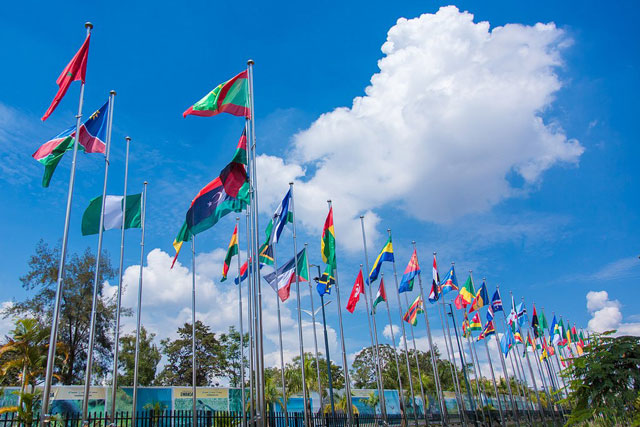
Liesl Louw-Vaudran | ISS AFRICA | The impressive turnout at the African Union’s Extraordinary Summit on the African Continental Free Trade Area (AfCFTA) on 21 March showed the continent’s united fervour to boost its economic opportunities. Delegations from 50 countries, including 27 heads of state, attended the summit in Kigali.
The fact that there were almost as many leaders present as attend the bi-annual AU summits contrasts with the major divisions within the AU on much-needed reforms of the institution. Countries seem to agree on boosting intra-African trade, but disagree on strengthening the AU itself.
At the January AU summit, 23 countries signed up to the Single African Air Transport Market and 30 have signed the AU’s Protocol to the Treaty Establishing the African Economic Community on Free Movement of Persons, Right of Residence and Right of Establishment.
Even though many hurdles lie ahead in establishing the free trade area and even more in allowing free movement of Africans across the continent, these agreements are important first steps. The AfCFTA initiative in particular has been hailed as a major achievement, paving the way for greater intra-African trade and more economic opportunities for all African states.
However while 44 countries signed the agreement, two of Africa’s biggest economies, South Africa and Nigeria, didn’t. Due to their economic, military and diplomatic strength and their history of driving change in Africa, these two countries are crucial for such initiatives. South African President Cyril Ramaphosa did attend the Kigali summit, and made upbeat statements about the benefits of the AfCFTA.
Why are South Africa and Nigeria cautious about Africa’s free trade deal? #AfCFTA ISS Today by @Lieslvaudran https://t.co/fO33aspwYd pic.twitter.com/wmtrLb4dJA
— ISS (@issafrica) April 4, 2018
 The Independent Uganda: You get the Truth we Pay the Price
The Independent Uganda: You get the Truth we Pay the Price



